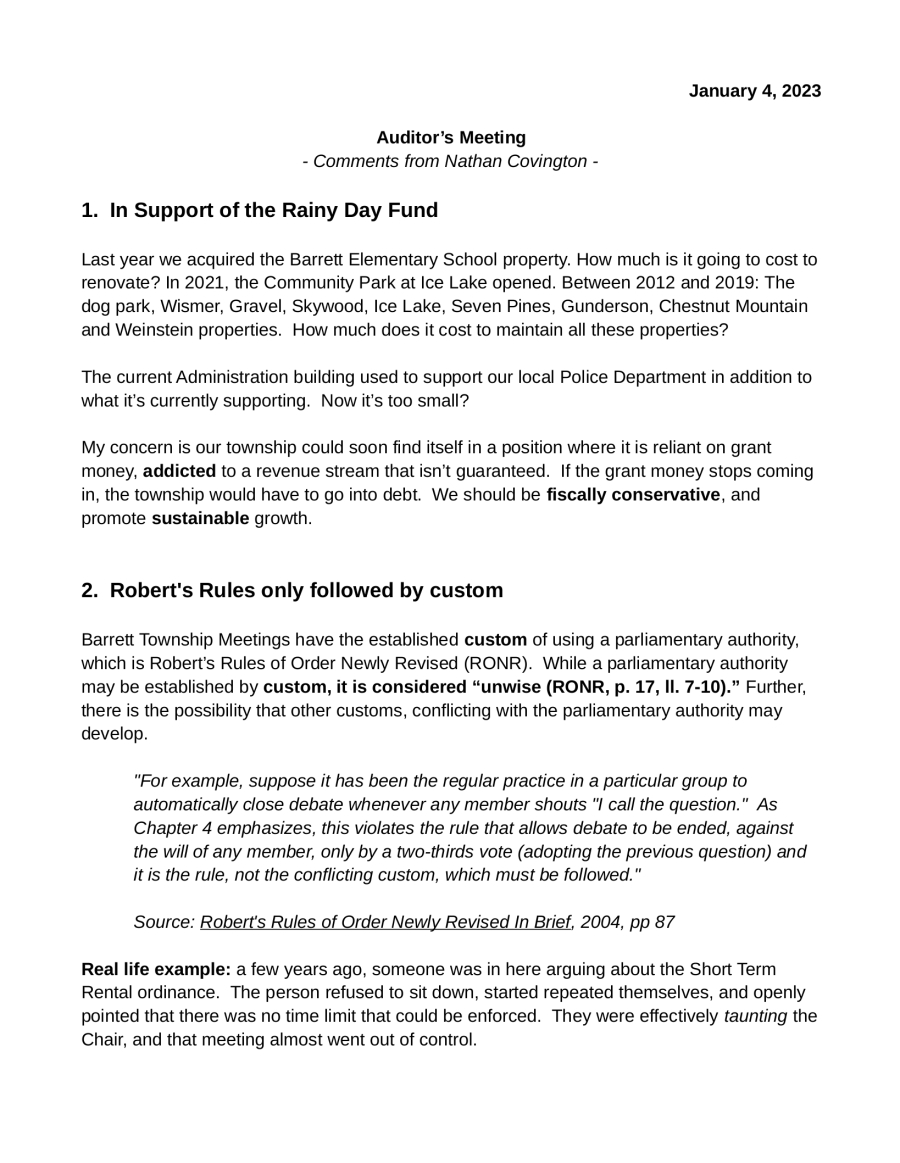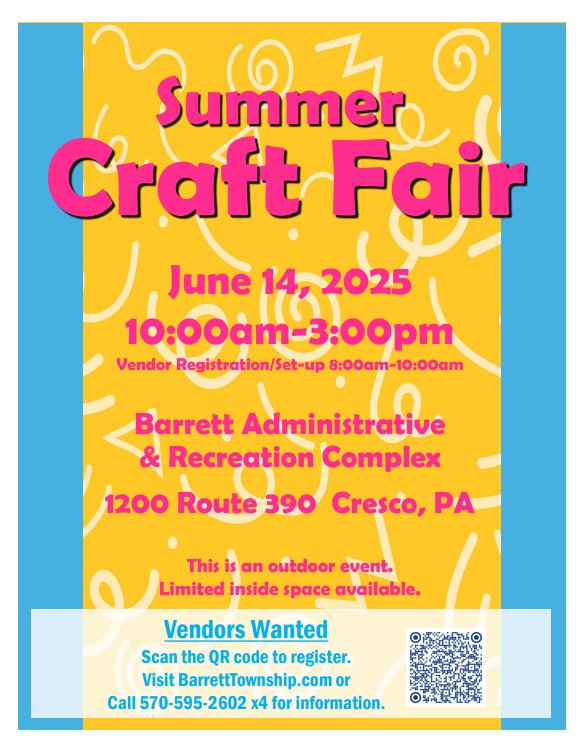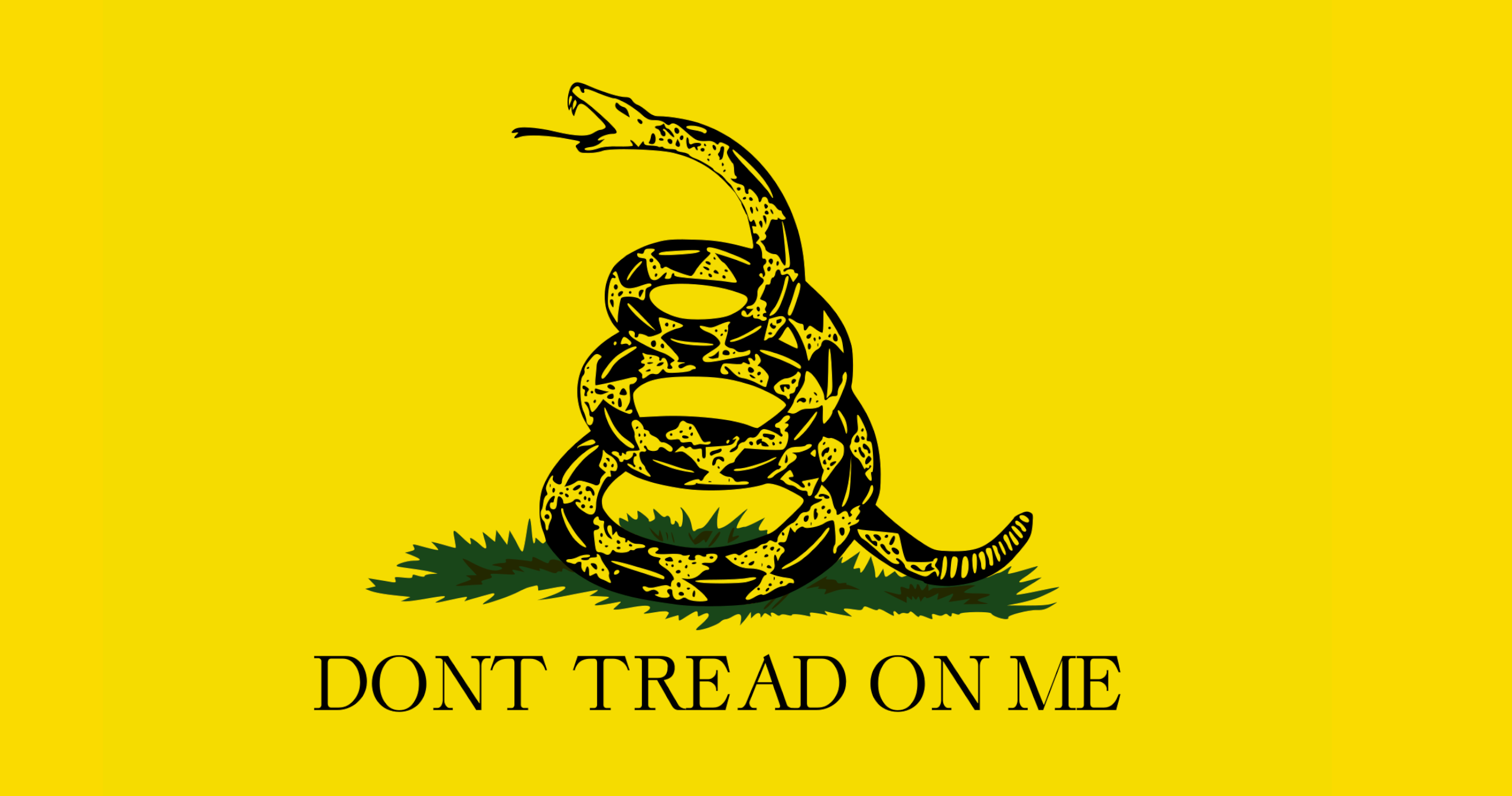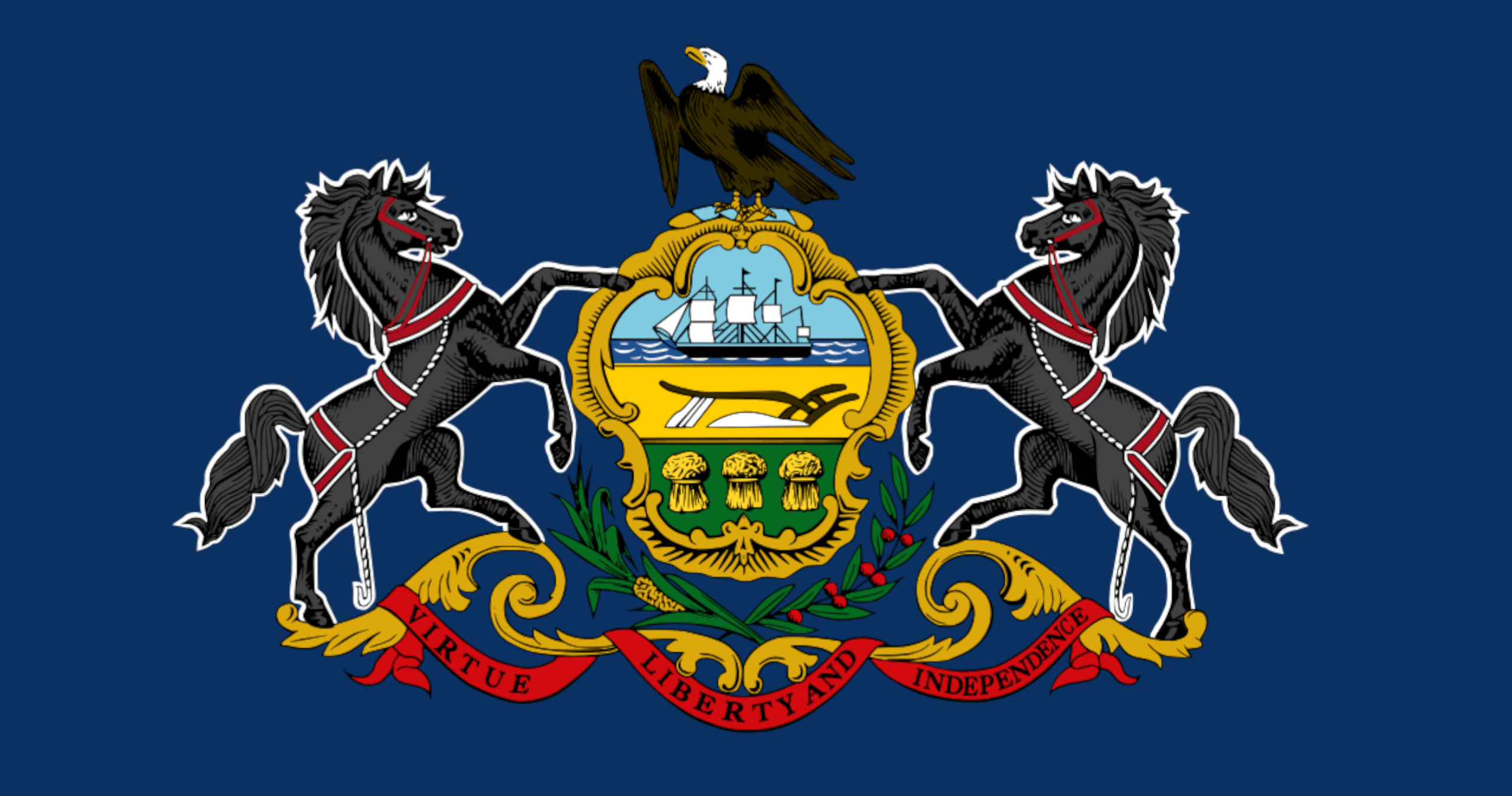The current Administration building used to support our local Police Department in addition to what it’s currently supporting. Now it’s too small?
My concern is our township could soon find itself in a position where it is reliant on grant money, addicted to a revenue stream that isn’t guaranteed. If the grant money stops coming in, the township would have to go into debt. We should be fiscally conservative, and promote sustainable growth.
2. Robert's Rules only followed by custom
Barrett Township Meetings have the established custom of using a parliamentary authority, which is Robert’s Rules of Order Newly Revised (RONR). While a parliamentary authority may be established by custom, it is considered “unwise (RONR, p. 17, ll. 7-10).” Further, there is the possibility that other customs, conflicting with the parliamentary authority may develop.
"For example, suppose it has been the regular practice in a particular group to automatically close debate whenever any member shouts "I call the question." As Chapter 4 emphasizes, this violates the rule that allows debate to be ended, against the will of any member, only by a two-thirds vote (adopting the previous question) and it is the rule, not the conflicting custom, which must be followed."
Source: Robert's Rules of Order Newly Revised In Brief, 2004, pp 87
Real life example: a few years ago, someone was in here arguing about the Short Term Rental ordinance. The person refused to sit down, started repeated themselves, and openly pointed that there was no time limit that could be enforced. They were effectively taunting the Chair, and that meeting almost went out of control.
On behalf of the taxpayers, what happens if we vote in new supervisors, who encounter such customs? (“We’ve always done it this way.”) What tools will be at their disposal in order to effectively take control of the meetings?
The recommendation is to codify all of these customs into written rules, in order to minimize any dispute as to what the rules are. Based on my research, Barrett may adopt a parliamentary authority by resolution, as opposed to an ordinance, which involves meetings that need to be advertised. If there are any aspects of Robert’s Rules that are undesirable, we can write a different rule into the resolution (or ordinance), which would supersede Robert’s.
3. The Chair should be impartial
Under Robert's Rules, the chair is supposed to be impartial. The best analogy I’ve found so far is the chair is supposed to be like a baseball umpire, they don’t get directly involved. In larger groups, Chairs aren't allowed to make motions, debate, or vote. They temporarily step down as chair and the Vice-Chair takes over until that motion has been voted on, then resume as Chair. For smaller assemblies, like we have in Barrett, Robert's has special rules, so the chair is technically allowed to make motions and vote.
However, going back to the original point of the Chair being impartial, my suggestion is for the Chair to say things like, "Do I hear a motion to _______," so that one of the other members can be recorded as actually making the motion. The Chair can also wait until last to cast their vote, meaning their vote is only used as a tiebreaker.
Respectfully Submitted,
Nathan Covington














